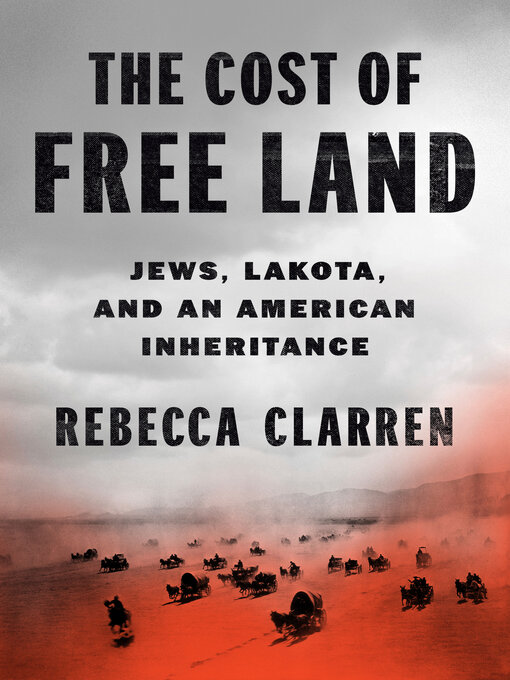
Winner of the Will Rogers Medallion Award for Western Nonfiction
Finalist for The Stubbendieck Great Plains Distinguished Book Prize
Shortlisted for The William Saroyan International Prize
A Kirkus Reviews Best Book of the Year
"Sharply insightful . . . A monumental piece of work."—The Boston Globe
An award-winning author investigates the entangled history of her Jewish ancestors' land in South Dakota and the Lakota, who were forced off that land by the United States government
Growing up, Rebecca Clarren only knew the major plot points of her tenacious immigrant family’s origins. Her great-great-grandparents, the Sinykins, and their six children fled antisemitism in Russia and arrived in the United States at the turn of the 20th century, ultimately settling on a 160-acre homestead in South Dakota. Over the next few decades, despite tough years on a merciless prairie and multiple setbacks, the Sinykins became an American immigrant success story.
What none of Clarren’s ancestors ever mentioned was that their land, the foundation for much of their wealth, had been cruelly taken from the Lakota by the United States government. By the time the Sinykins moved to South Dakota, America had broken hundreds of treaties with hundreds of Indigenous nations across the continent, and the land that had once been reserved for the seven bands of the Lakota had been diminished, splintered, and handed for free, or practically free, to white settlers. In The Cost of Free Land, Clarren melds investigative reporting with personal family history to reveal the intertwined stories of her family and the Lakota, and the devastating cycle of loss of Indigenous land, culture, and resources that continues today.
With deep empathy and clarity of purpose, Clarren grapples with the personal and national consequences of this legacy of violence and dispossession. What does it mean to survive oppression only to perpetuate and benefit from the oppression of others? By shining a light on the people and families tangled up in this country’s difficult history, The Cost of Free Land invites readers to consider their own culpability and what, now, can be done.
-
Creators
-
Publisher
-
Release date
October 3, 2023 -
Formats
-
Kindle Book
-
OverDrive Read
- ISBN: 9780525507628
-
EPUB ebook
- ISBN: 9780525507628
- File size: 28701 KB
-
-
Accessibility
-
Languages
- English
-
Reviews

Loading
Formats
- Kindle Book
- OverDrive Read
- EPUB ebook
Languages
- English
Why is availability limited?
×Availability can change throughout the month based on the library's budget. You can still place a hold on the title, and your hold will be automatically filled as soon as the title is available again.
The Kindle Book format for this title is not supported on:
×Read-along ebook
×The OverDrive Read format of this ebook has professional narration that plays while you read in your browser. Learn more here.